What does it take to make a hip-hop hit? TikTok.
- Oops!Something went wrong.Please try again later.
The verse
Armani White knew his song “Billie Eilish” was special from the start.
His lyrics popped up at first, in a 16-second clip on Instagram and TikTok in February 2022. White had used the beat from rapper N.O.R.E.’s 2002 hit “Nothin,” tweaked it, added some bells and whistles and topped it off with hard-hitting, catchy lyrics.
“B—-, I’m stylish/Glock tucked, big T-shirt, Billie Eilish!” the line goes, referring to the pop singer’s signature baggy clothing, which often includes an oversized T-shirt.
The clip garnered millions of views on social media and bolstered White’s monthly listeners on Spotify from a couple thousand to over a million, and his overall streams to billions. White had a hit on his hands before the song was even officially released. Seven months later, the song would land White a spot on the Billboard Hot 100 chart, a performance at the BET Awards and a record deal with Def Jam Recordings.
White’s “Billie Eilish” phenomenon is a testament to the power of social media.
“It helped me reel in and find an audience I don’t think I would’ve found in Philly,” said the 26-year-old West Philadelphia native. “It started as a social media thing but it’s grown past that a long time ago. We’ve sold out shows in real life.”
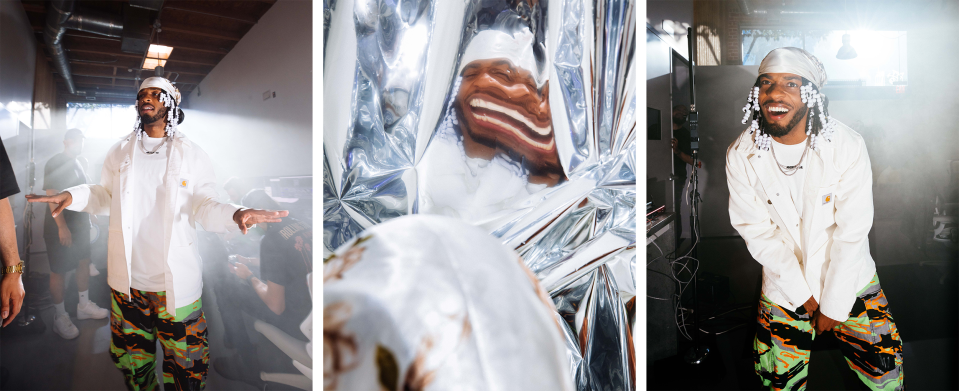
As for White, his 1 million followers across TikTok, Instagram and Twitter are a result of his social media prowess and years of hard work — he isn’t quite an overnight success.
His current situation is a far cry from his life about three years ago, when White’s home caught fire and he and his brother were wrongfully arrested for the blaze. All charges were ultimately dropped. He drew modest praise for his 2019 album “Keep In Touch” and his 2021 EP “Things We Lost in the Fire.” But since then, White has gone from delivering pain-filled bars in a beanie and a hoodie in front of an old impala to commanding audiences at sold-out shows with a new signature look that includes a pair of watches and a silk scarf tied over beaded braids.
It’s been 50 years since hip-hop emerged in 1970s New York, a genre led by Black musicians that would forever change the music landscape. But the rise to rap stardom today is vastly different from recording demo tapes to hand out in front of record label offices, with the hope of breaking through the music industry's nearly impenetrable gates.
Social media has given musicians the opportunity to build independent brands online and reach millions of people instantly — circumventing the need for major labels. Virality can catapult a passionate rapper from obscurity to sold-out shows.
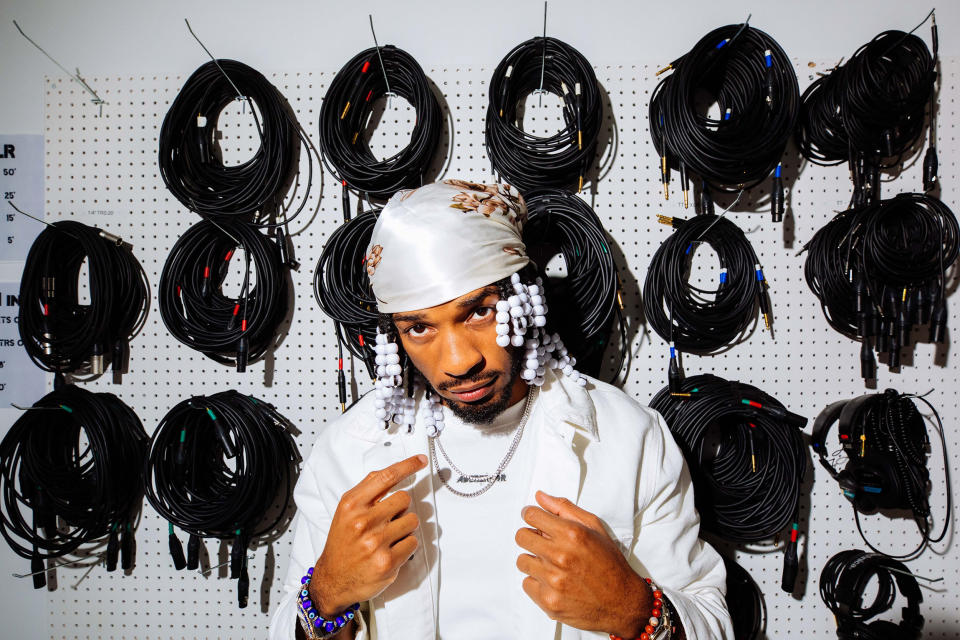
The Hook
White previously had a taste of social media attention, he said, with some of his songs seeing 50,000 streams. But that paled in comparison to the popularity of “Billie Eilish”: After he shared that first clip on social media — a video of White excitedly listening to the song in a studio with friends — new fans were desperate for him to release the full song.
“I wanted to create FOMO, I wanted people to feel like they want this song,” White said. “We kept trying to create this idea that you’re missing out if you don’t have this song. That’s what we dragged for those few months, building up the anticipation.”
White had reason to be concerned. Social media trends come and go quickly; a sound heard in nearly every TikTok today could be old news by tomorrow.
“Social media happens so fast. There’s things I see happen all the time where someone has this hype, this moment, then the smoke kind of clears and it’s like, ‘We don’t really care anymore.’ I definitely had those moments where I thought we might’ve missed our shot.”
There was one problem: White couldn’t issue an official release without getting permission to use the original music sample from N.O.R.E. And his audience was getting antsy.
So he and his small team of friends decided transparency was the right tactic. White posted Instagram clips and TikTok videos about the holdup and the fun of having created a viral song. This, he said, maintained a connection with his fans as he worked behind the scenes.
He created rap challenges around the song and even got a nod from Eilish herself. Finally, after three months, White was able to clear the sample and officially release the song on streaming platforms like Apple Music.
Building the anticipation paid off: “Billie Eilish” had been used in more than 1 million videos on TikTok by September 2022.
The result was a relief for the rapper, but he knew he couldn’t take his foot off the gas just yet. He’d have to make the leap taking the viral song off the internet and into the real world.
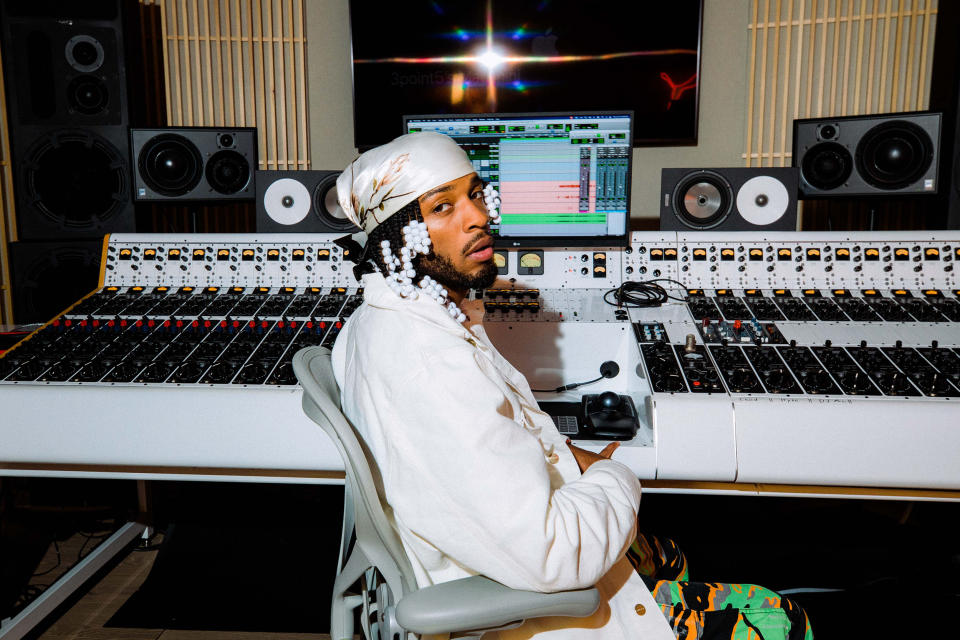
The Bridge
White began performing the song everywhere he could, including in major events like Philadelphia’s Made in America festival, and he even sold merchandise promoting the track. He knew that his viral moment would only ever be what he made of it.
“I felt like I had my head down doing the work, and I didn’t realize all the changes that were happening,” White said of his success. He’s been rapping since 2015, he said, and describes his career as a slow-moving journey. “I was in a corner of Philly, making my little music or whatever. Now, it’s like, ‘This is real.’”
He added with a laugh, “My two little dirty Michael Kors watches, now it’s two Rolexes.”
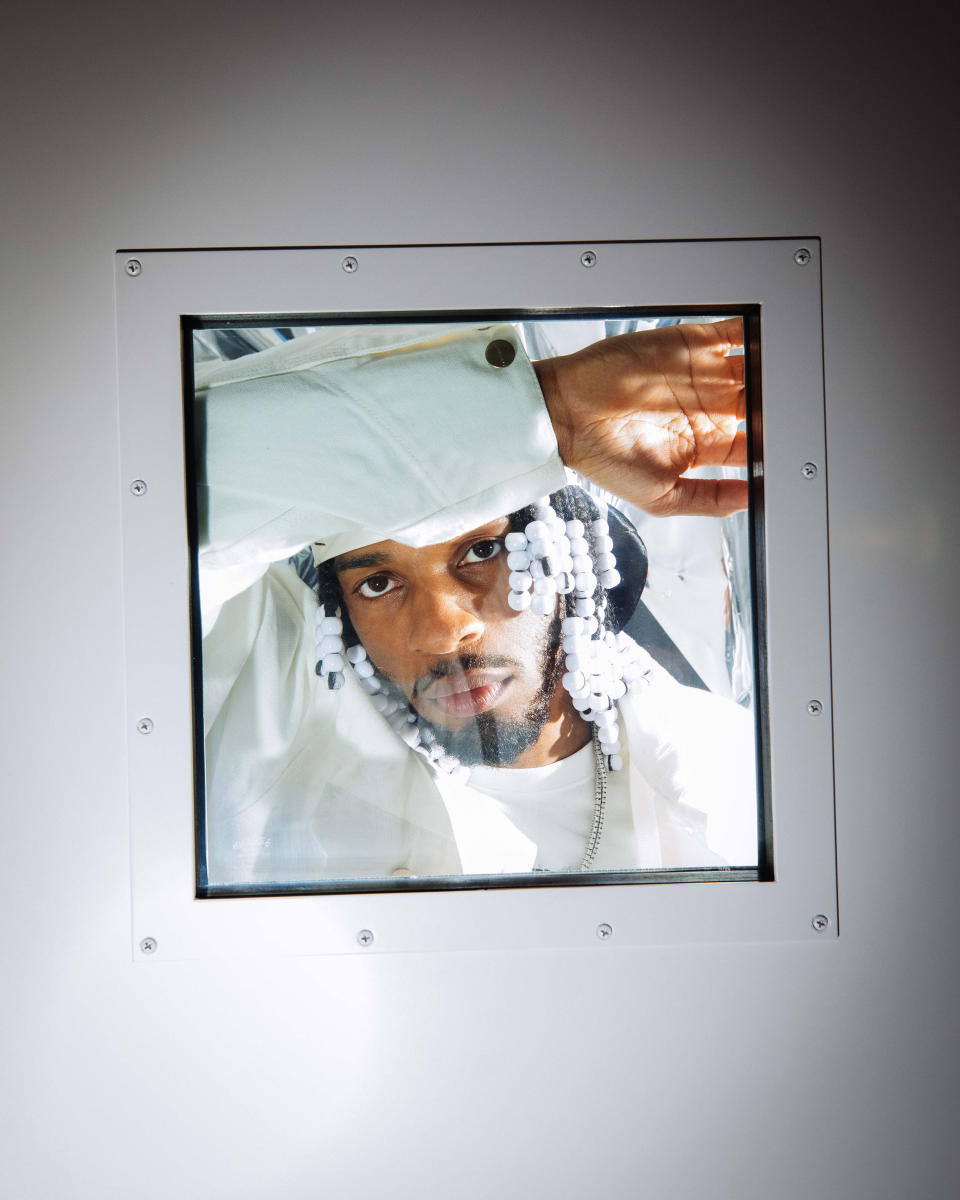
Rappers have been tapping into social platforms to promote their music since the early days of MySpace and YouTube. The innovation and creativity they’ve used to build their platforms without record labels is a testament to the resourcefulness of Black people in general, said scholar A.D. Carson, an associate professor of hip-hop and the global south at the University of Virginia.
Soulja Boy was among the earliest adopters of YouTube and the self-proclaimed first rapper to utilize the platform in his quest for notoriety. He used the videos to direct fans to his website and encouraged viewers to do the dances he performed — including the famous “Crank That” dance that accompanied his first hit “Crank That (Soulja Boy).” This replicability has been central to social sites like TikTok.
“Hip-hop has always had technology, then used it often against whatever its intended use was. Outside of the parameters of what people were imagining when it was created,” Carson said. “This is really the inventiveness of Black folks across time.”
White is among myriad rappers whose songs have benefited from going viral on TikTok. In 2019, Lil Nas X was an anonymous, amateur rapper before TikTok got a hold of “Old Town Road,” X’s country-rap song. It exploded online and his life hasn’t been the same since. The debut single had a record-breaking 19-week run on the Billboard Hot 100 chart and X signed to Columbia Records.
Other rappers like Erica Banks, Calboy, K Camp and Stunna Girl have benefited from TikTok trends featuring their songs. Established artists like Drake, Megan Thee Stallion and Wiz Khalifa have tapped into the short-form video platform, with users latching onto dances to their songs.
“Social media has changed hip-hop, but hip-hop has also shaped social media,” Carson said. “Hip-hop has taken technology and then folded it into the methodology of making, marketing, spreading and engaging with the community.”
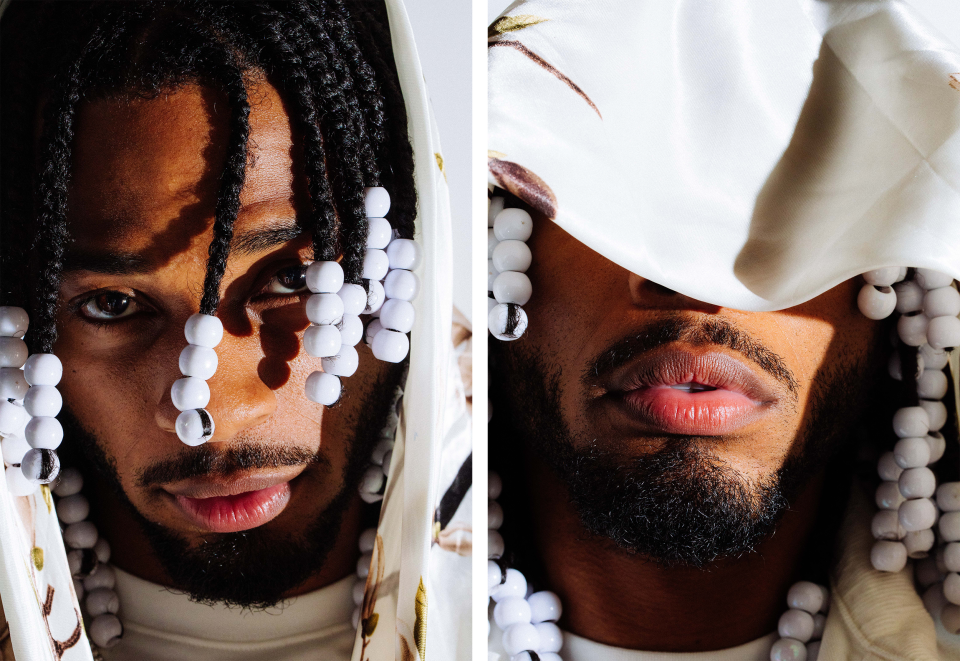
The Chorus
It’s been a year since White was signed to Def Jam, and he’s been going nonstop, he said. He moved from Pennsylvania to California and recently released “Road to CASABLANCO,” an album featuring big names like Busta Rhymes, A$AP Ferg, Fivio Foreign and others. White calls his genre “happy hood music,” an expression of both the hardships and joys of life.
White was content with being an independent artist before signing with Def Jam last summer, he said. He wasn’t looking for major industry support, but didn’t want to turn down an offer to build upon his team, largely made up of his close friends.
“Armani is a dynamic artist who’s been bubbling underground for a while now and has caught lightning in a bottle with ‘Billie Eilish,’” Def Jam Recordings CEO Tunji Balogun told Billboard last summer. “We’re all excited to help him develop, connect with a wider audience and become the star he’s shown he can be.”
This speaks to the ways social media access is changing the recording industry. Long gone are the days of record labels as the gatekeepers of the industry, and the exclusivity of landing a coveted deal with a major label. Today, rappers don’t need labels as much. Like White, they’re able to build their own platforms and brands online and use their organic social media success to foster brand deals, partnerships and more — all without the help of big-name labels.
With rappers able to build their platforms and brands online, the music industry has morphed dramatically.
“Record labels are asking, ‘How will we remain relevant?’” Carson said. “Their relevance has been at stake for a really long time. If Def Jam comes to me and says, ‘Hey, we want to sign you,’ and my response is, ‘Well, what can you give me that I can’t get on my own?’ I’m using the idea of the record label against the record label.”
In some ways, social media has become an alternative to a hole-in-the-wall live show venue, where music executives might stake out to find fresh talent. Now they keep tabs on artists on Instagram and TikTok, while also paying exceedingly close attention to the artist’s follower count.
“Find your way to be authentic. Don’t be corny. Don’t just follow some metric or some scheme everybody is doing,” White said. “You have to find your own unique character, what’s unique to you. That’s what I did on social media. I found out who I was and I just inflated it.”
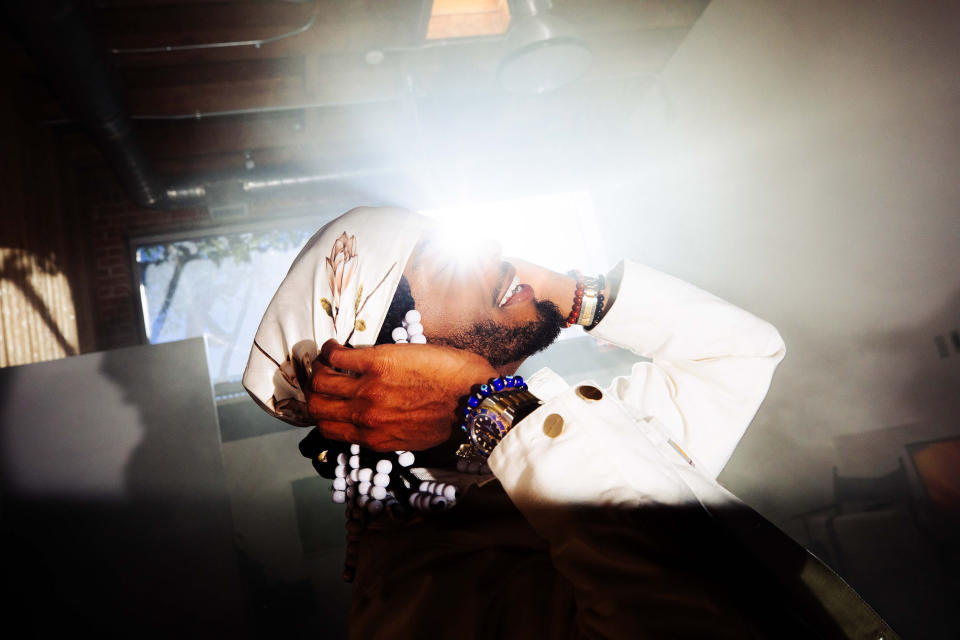
This article was originally published on NBCNews.com

